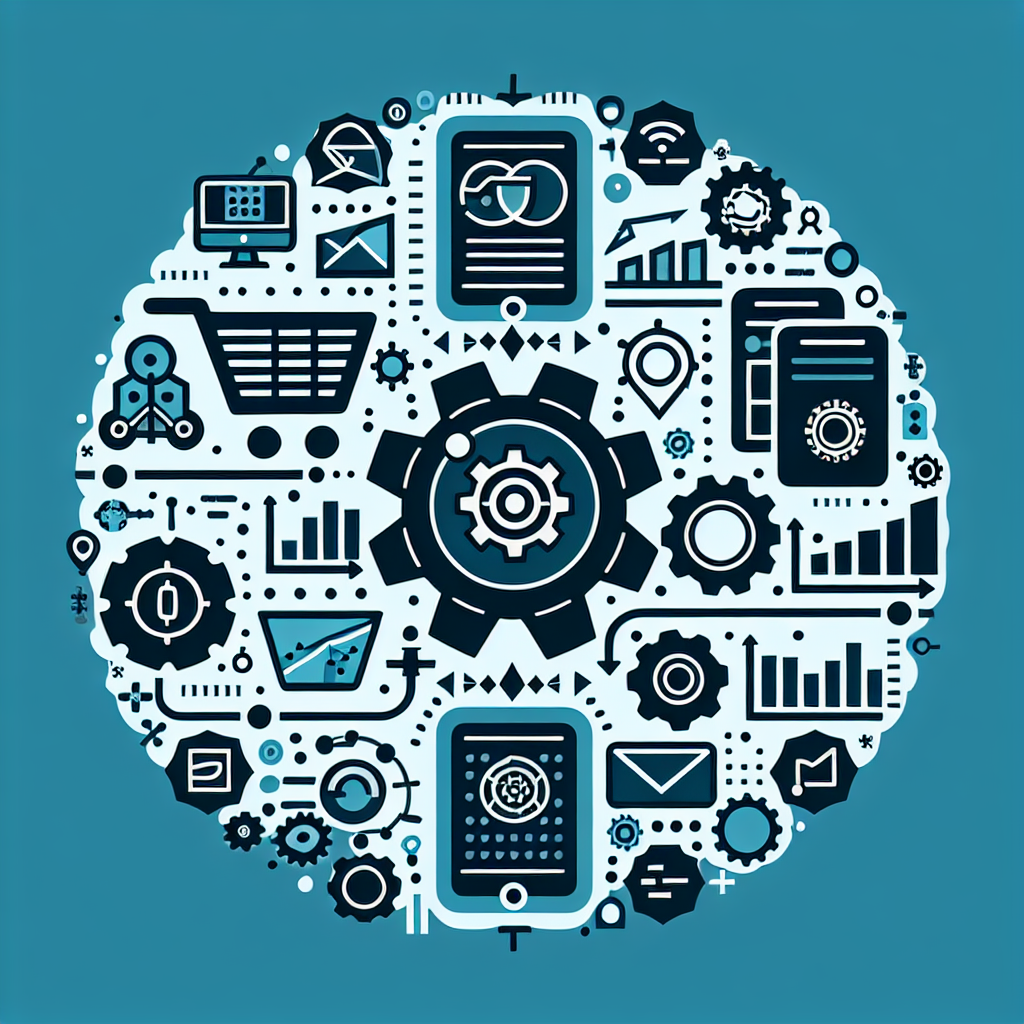In today’s digital age, businesses are constantly looking for innovative ways to reach their target audience and drive sales. One of the most powerful tools that has emerged in recent years is machine learning. Machine learning is a branch of artificial intelligence that uses algorithms and statistical models to enable computers to learn and make decisions without being explicitly programmed. In the realm of digital marketing, machine learning is revolutionizing the way companies analyze data, target customers, and personalize their messaging.
The Role of Machine Learning in Digital Marketing
Machine learning has a wide range of applications in digital marketing, from optimizing ad campaigns to predicting customer behavior. Here are some key ways in which machine learning is transforming the field of digital marketing:
1. Personalization: Machine learning algorithms can analyze vast amounts of data to create detailed customer profiles and predict their preferences and behaviors. This enables marketers to deliver highly personalized messages and offers to individual customers, increasing the likelihood of conversion.
2. Targeting: Machine learning algorithms can also help businesses target the right audience with their marketing campaigns. By analyzing customer data and behavior patterns, machine learning can identify the most promising leads and optimize ad placements for maximum impact.
3. Content optimization: Machine learning can help marketers analyze the performance of their content and optimize it for better engagement and conversions. By analyzing factors such as click-through rates, bounce rates, and social shares, machine learning algorithms can suggest changes to improve content performance.
4. Predictive analytics: Machine learning algorithms can analyze historical data to predict future trends and behaviors. This can help marketers identify opportunities for growth, anticipate customer needs, and make data-driven decisions to drive business success.
5. Customer segmentation: Machine learning algorithms can segment customers based on their behavior, preferences, and demographics. This enables marketers to tailor their messaging and offers to different customer segments, increasing the relevance and effectiveness of their marketing campaigns.
6. Real-time optimization: Machine learning algorithms can analyze data in real-time to optimize marketing campaigns on the fly. This enables marketers to make quick adjustments to their campaigns based on real-time data, ensuring that they are always targeting the right audience with the right message.
7. Fraud detection: Machine learning algorithms can also help businesses detect and prevent fraud in digital marketing campaigns. By analyzing patterns of fraudulent behavior, machine learning algorithms can flag suspicious activity and prevent fraudulent transactions.
FAQs:
Q: How can machine learning help businesses improve their digital marketing efforts?
A: Machine learning can help businesses improve their digital marketing efforts by analyzing data, predicting customer behavior, optimizing ad campaigns, and personalizing messaging to target customers more effectively.
Q: What are some common challenges businesses face when implementing machine learning in digital marketing?
A: Some common challenges businesses face when implementing machine learning in digital marketing include data privacy concerns, lack of expertise in machine learning, and difficulty integrating machine learning algorithms into existing marketing systems.
Q: How can businesses get started with machine learning in digital marketing?
A: Businesses can get started with machine learning in digital marketing by first identifying their goals and objectives, gathering and analyzing data, selecting the right machine learning algorithms, and testing and optimizing their campaigns based on the results.
Q: What are some best practices for implementing machine learning in digital marketing?
A: Some best practices for implementing machine learning in digital marketing include setting clear goals and objectives, gathering and analyzing high-quality data, selecting the right machine learning algorithms, testing and optimizing campaigns, and continuously monitoring and evaluating performance.
Q: What are some examples of successful applications of machine learning in digital marketing?
A: Some examples of successful applications of machine learning in digital marketing include personalized product recommendations, targeted ad campaigns, predictive analytics for customer behavior, and real-time optimization of marketing campaigns.
In conclusion, machine learning is playing an increasingly important role in digital marketing, enabling businesses to analyze data, predict customer behavior, personalize messaging, and optimize ad campaigns with unprecedented precision and efficiency. By harnessing the power of machine learning, businesses can gain a competitive edge in today’s rapidly evolving digital landscape and drive success in their marketing efforts.

